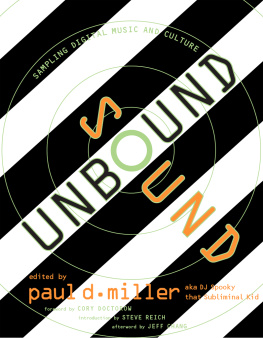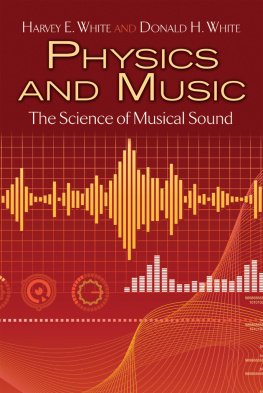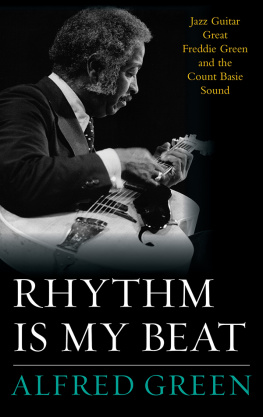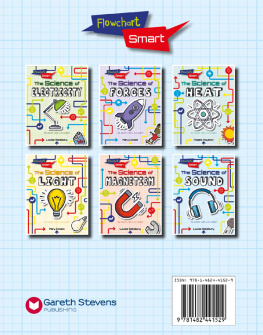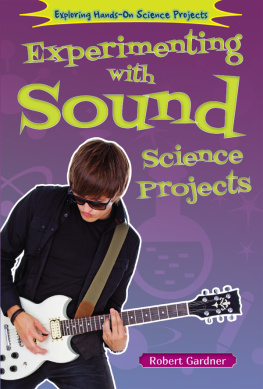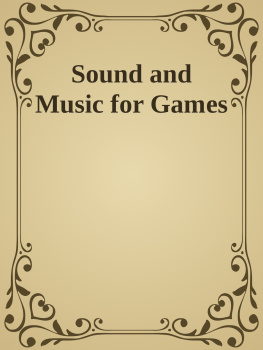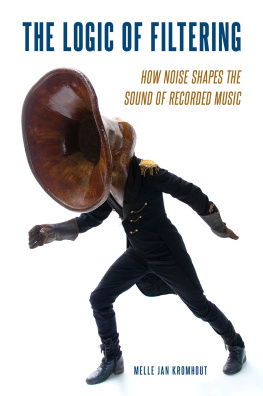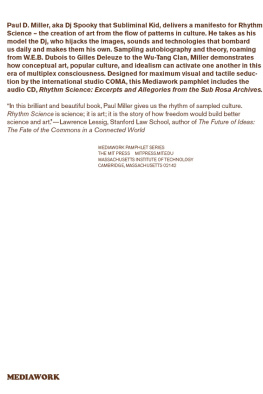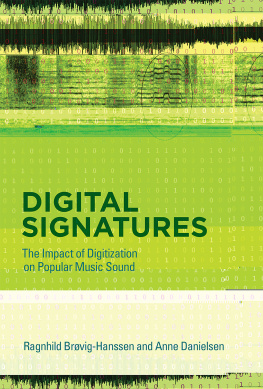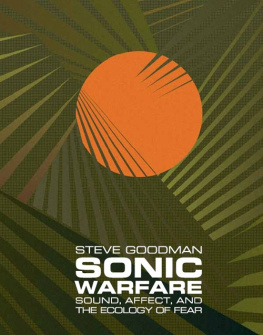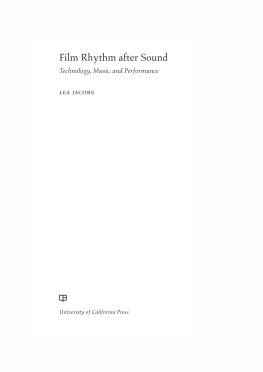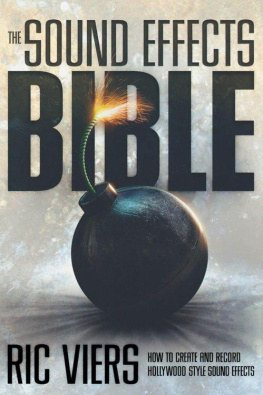SOUND UNBOUND
SOUND UNBOUND
Sampling Digital Music and Culture
edited by Paul D. Miller aka DJ Spooky that Subliminal Kid
The MIT Press
Cambridge, Massachusetts
London, England
2008 Paul D. Miller
Electronic edition published 2010
All rights reserved. No part of this book may be reproduced in any form by any electronic or mechanical means (including photocopying, recording, or information storage and retrieval) without permission in writing from the publisher.
For information about special quantity discounts, please email .
This book was set in Minion and Syntax on 3B2 by Asco Typesetters, Hong Kong, and was printed and bound in the United States of America.
Library of Congress Cataloging-in-Publication Data
Sound unbound : sampling digital music and culture / edited by Paul D. Miller.
p. cm.
Includes bibliographical references and index.
ISBN 978-0-262-63363-5 (pbk.: alk. paper) 978-0-262-26646-8 (e-book)
1. Music21st centuryHistory and criticism. 2. Music and technology. 3. Popular culture21st century. I. DJ Spooky That Subliminal Kid.
ML197.S694 2008
780.9'05dc22 2007032443
10 9 8 7 6 5 4 3 2 1
Contents
Steve Reich
Paul D. Miller aka DJ Spooky that Subliminal Kid
Saul Williams
Jonathan Lethem
Erik Davis
Bruce Sterling
Dick Hebdige
Keith + Mendi Obadike
9. Freeze Frame: Audio, Aesthetics, Sampling, and Contemporary Multimedia
Ken Jordan and Paul D. Miller aka DJ Spooky that Subliminal Kid
David Allenby
Pauline Oliveros
Scanner aka Robin Rimbaud
Daphne Keller
Beth Coleman and Howard Goldkrand
Lucy Walker
Joseph Lanza
Jeff E. Winner
Ron Eglash
Lee Hirsch
Manuel DeLanda
Liminal Product: Frances Dyson and Douglas Kahn
Carlo McCormick
Ken Jordan
24. Permuting Connections: Software for Dancers
Scott deLahunta
Vijay Iyer
Alondra Nelson
Evelina Domnitch and Dmitry Gelfand
Naeem Mohaiemen
Chuck D
Brian Eno
Daniel Bernard Roumain (DBR)
Hans Ulrich Obrist and Philippe Parreno
Ibrahim Quraishi
Catherine Corman
Jaron Lanier
Foreword
Cory Doctorow
I was stuck in a hotel room in Geneva, attending a standards body meeting where a group of broadcasters and big entertainment companies were trying to break the Internet so that its worse at copying.
I fired up Skype and stuck on a headset and rang my girlfriend in London, who slipped on her headset. It was lonely in Geneva. Genevas the kind of place where nearly everyone who isnt a native has to be there for work, and the natives know it. Genevas a great place to get robbed, or screwed at a crappy hotel you wouldnt kennel a dog in, or fed a meal whose price/performance ratio is worse than a Hummers. Sitting in my hotel room, skyped into my girlfriends bedroom in London, I was in two places at once. The familiar ambient sounds of London, the screech of black cabs brakes, and the roar of the chavs watching footie at the pub all leaked through my little earbuds. Cyberspace is the place where a phone conversation takes placethats what William Gibson said. For that witching hour, I was in Geneva and I was in London and I was in neither.
We didnt say much, my girlfriend and I. I was typing and she was typing and we heard each others keystrokes. She took a call. I took a call. It was like being back at home, so long as I didnt look up from my screen at the grimy paint of the Hotel Terminus.
I cant work without music. Ive got about 10,000 tracks in iTunesitself, incidentally, a piece of software created by a company that is deploying lots of technology in an attempt to break the Internet by making it worse at copyingand Ive rated every track from 1 to 5. I start every day with my playlist of 4- to 5-star music that I havent heard in thirty days, like making sure that I visit all my friends at least once a month (I wish my phone and email were smart enough to remind me which of my best pals Ive forgotten to ping this month). After that, I listen to songs I havent rated, and rate them. Then its on to 4- to 5-star songs Ive heard fewer than five times, total. I dont want random shuffle: I want directed, optimized shuffle.
I put on the shuffle. I mixed the iTunes volume into my cans so that it ran about half my girlfriends speaking volume. She did the same. We have wildly divergent musical tastes, so usually when were at home, we both wear headphones with only one earpiece in so that we can still converse without inflicting our music on one another. Shes promised to kill me if I play one more Bob Wills yodel for her.
Now here we both were, separated by thousands of klicks, in different countries, but on the same Internet and in the same conversational space.
Our music, however, was in a third place. My music was in my virtual environment, but not mixed into the mic. When I hummed, it was to the tune in my ears, not the one in hers. Likewise, she was grooving to something of her own. Our bodies were separate, our music was separate, our minds were converged.
I was at a party thrown by Linden Labs, who make the multiplayer game Second Life. Theyd rented a chic, grimy gallery in San Franciscos SOMA. Theyd also modeled the gallery virtually in Second Life. Many of us were present in real body in SOMA; many of the players were present virtually in the virtual gallery, which was up on a big jumbotron being fed by a beamer. A DJ spun for us, but were geeky conference-attendees; accordingly, we talk instead of dancing when we gather.
The gamers, though, were there to dance. They had painstakingly programmed or purchased dance routines for their avatars, and the virtual hotties on the screen over our heads were really burning the house down.
But for all that, every avatar was dancing to a different beat. Presumably, every player was listening to a different song. And none was dancing in time with our DJ.
They tell us the Internet drives us apart. Music brings us together. Its not clear to me whether the Internet was driving those gamers apart, nor is it clear that the DJ who was drowning out our chatter was bringing us together. Somewhere in the network and the music, theres a mix that brings us together because were apart.
In the 1930s, the vaudeville artists hated Marconis radio. They argued that even if the radio could deliver its crazy dotcom promises of big advertising business, it wasnt a radio execs place to tell a musician how to make a living. Being charismatic on a stage was what being a musician was aboutit was holy, like the first story told before the first fire in the first cave. Who was Marconi to doom musicians to being mere clerks, and what would become of those live performers whose magic was in the stagecraft, who couldnt be boiled down and captured on an infernal talking machine?
Seventy-some years later, their spiritual descendants are damning the Internet. We tell them, be the Grateful Dead: use your fluid, highly mobile recordings to advertise your gigs, make your money at the door and not the record store. They ask us where we get off telling them how to make a living. Theyre not trained monkeys, to caper and gibber on a stage for our amusement! Theyre white-collar workersthey work indoors, communing with the muse until it is time to release the finished product to their audience. Besides, what about all those studio wizards who have the charisma of a catfish? Will we doom them to the scrapheap of history?
Technology giveth and technology taketh away. No business model, art form, or practice has the inherent right to exist: it has to fit in with the social, technological, and market realities of its day. The world is poorer because short stories and poems have fallen out of favor, but legislating poetry back into the market would be insane. Successful poets today write songs, just as successful metalworkers today hack hardware, not horseshoes.
Next page
